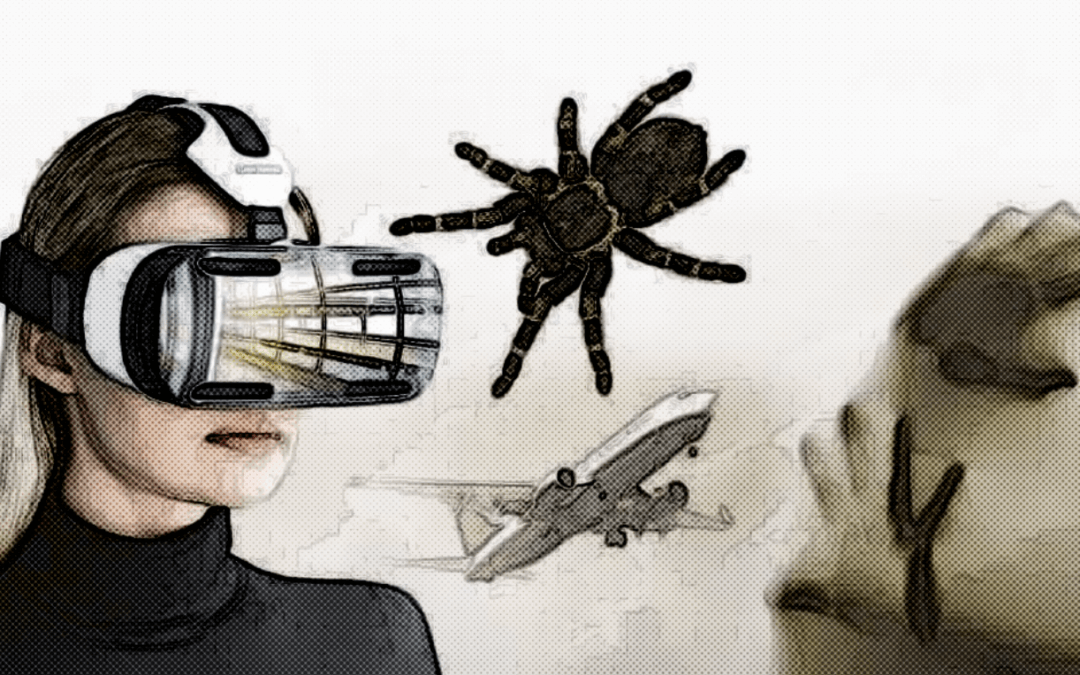As you can imagine, virtual reality exposure therapy consists of therapists and patients utilizing simulated environments to conduct therapy sessions. But first, let’s back up so we are sure to understand both components of this process.
What is exposure therapy?
Exposure therapy is a widely recognized and effective treatment for anxiety disorders, and the integration of VR has made it even more accessible and effective.
What is virtual reality?
Virtual reality (VR) is an emerging technology that has been used to treat a variety of mental health conditions, including anxiety disorders.
Exposure Therapy is a Form of CBT
Exposure therapy is a form of cognitive-behavioral therapy (CBT) that involves gradually exposing patients to anxiety-provoking stimuli until they learn to manage their anxiety and develop coping mechanisms.
For example, a person with a phobia of heights may gradually be exposed to increasing heights until they can tolerate being at a high altitude.
Exposure therapy can be challenging to implement in real-life situations, especially for patients who live in areas where it is difficult to find the stimuli that provoke their anxiety.
How can virtual reality be applied to exposure therapy?
Virtual reality can replicate real-life situations and stimuli with great accuracy, providing a safe and controlled environment for exposure therapy. Patients can be immersed in virtual environments that simulate real-life situations, allowing them to practice their coping mechanisms in a safe and controlled environment.
For example, a patient with a fear of flying can be exposed to a virtual flight simulator, where they can practice their coping mechanisms in a safe and controlled environment.
The top four benefits of using virtual reality for exposure therapy:
-
Improved Engagement
One of the main benefits of using VR for exposure therapy is that it can provide a more engaging and immersive experience for patients. Traditional exposure therapy can be tedious and repetitive, leading to disengagement and reduced motivation.
VR can provide a more engaging experience that is tailored to the individual patient’s needs, making the therapy more effective and enjoyable.
-
Customizable
Another benefit of using VR for exposure therapy is that it can be customized to suit the specific needs of each patient.
For example, a patient with a fear of public speaking can be exposed to a virtual audience that is tailored to their specific needs. They can practice speaking in front of a small audience or a large one, depending on their level of anxiety.
-
More Control Over Stimuli
Using VR for exposure therapy also provides therapists with more control over the stimuli that patients are exposed to. Therapists can customize the virtual environments to create scenarios that are challenging but manageable for each patient. They can also monitor patients’ responses to stimuli and adjust the therapy accordingly.
-
Reduced Costs
Finally, using VR for exposure therapy can also reduce the cost and time required for treatment. Traditional exposure therapy can be time-consuming and expensive, requiring patients to travel to therapy sessions and access the necessary stimuli. VR can be used remotely, allowing patients to access therapy from the comfort of their own homes.
Summary of Benefits
In conclusion, virtual reality is a promising tool for exposure therapy, providing patients with a safe and controlled environment to practice their coping mechanisms. It can provide a more engaging and immersive experience, customized to the specific needs of each patient, and can be used remotely, reducing the cost and time required for treatment.
As the technology continues to advance, VR may become an increasingly popular tool for therapists treating anxiety disorders and other mental health conditions.
Schedule a Session
If you are interested in trying virtual reality exposure therapy, we can help.
Contact our CBT experts to ask questions or to request a session. We would love to speak with you.


